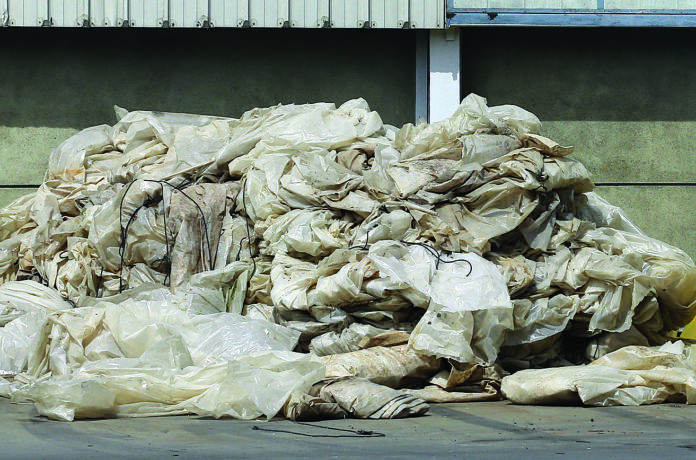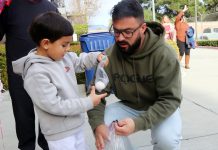
California Marine Sanctuary Foundation (CMSF) has advice for farmers who have accumulated huge heaps of used plastic, specifically used drip system tape and hoop house film.
CMSF Water Quality Program Coordinator Jazmine Mejia-Muñoz met via Zoom with Pajaro Valley residents concerned about the massive amounts of microplastics in human bodies and the environment. She spelled out one avenue growers can choose to direct their used plastic.
For the Pajaro Valley, and surrounding area, she said farmers can take used drip tape and hoop-house film to ReGen Monterey at 14201 Del Monte Blvd. in Marina.
CMSF leads scientific research on agricultural plastic pollution in watersheds and works closely with Monterey Bay National Marine Sanctuary, UC Cooperative Extension, local growers and researchers from Washington State University and Cal Poly in conducting ongoing trials of biodegradable mulch in place of traditional plastic mulch on strawberry fields.
“We work with small- to large-scale farmers to try to study plastic impact,” Mejia-Muñoz said. “We are concerned with marine debris as a priority.”
She said her group views various watersheds that span five counties, 12 cities and six congressional districts that drain into the Monterey Bay.
The Monterey Bay National Marine Sanctuary is the only marine sanctuary that has a water quality program and is also the only one in the United States that has an agriculture water quality alliance.
“For the past 30 years the Sanctuary has worked really closely with agricultural businesses on an array of topics, including plasticulture,” Mejia-Muñoz said.
Plasticulture came about in the 1950s in Europe when it was discovered that new products could replace glass with polyethylene film.
“In the 1940s, research proved that glass greenhouses could be replaced with plastic, which revolutionized agriculture around the world,” Mejia-Muñoz said. “Now we see plastic used in everything from greenhouses to fields. Plasticulture has a lot of benefits, both environmentally and in agriculture, leading to less pesticides and longer crop seasons.”
She added that plastic also aids in helping to control temperatures of root systems, is required for some fumigation treatments and can be used to help address pest controls. In addition, plastic use can lead to the use of less pesticides, longer crop season, food safety and reduced labor in weed removal.
But environmental advocates say that plastic waste is a global, ubiquitous problem that is growing worse.
According to the U.S. Environmental Protection Agency, plastic can take from 100 to 1,000 years to decompose. Worse, it breaks down into microplastics, tiny pieces of plastics that have been found in every ecosystem on earth, from the bottom of the ocean to deserts to coral reefs.
“We are concerned that plastics can escape and end up in your waterways,” Mejia-Muñoz said. “It’s hard to take a realistic look or take a hard stop on plastic that could risk global food security. We are trying to look at a solution.”
For information, call ReGen Monterey at 831.384.5313 or visit montereybay.noaa.gov.











